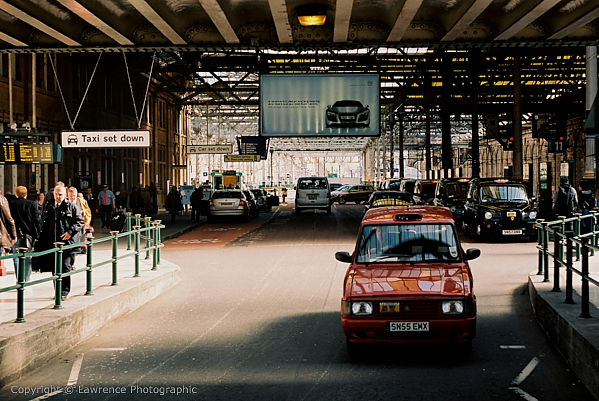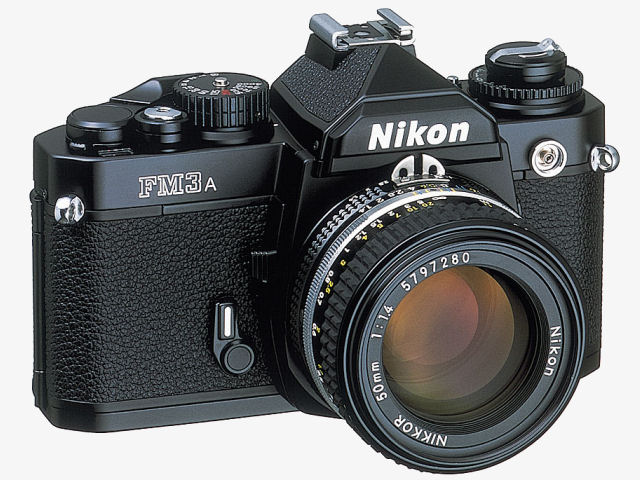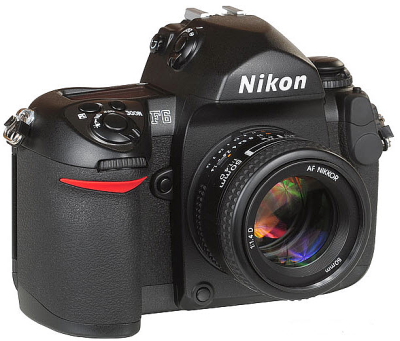|
Film
Photography + The Darkroom! |
Last Updated - 12th August
2013
Film is still very
much around and in demand, especially for those photographers who have
become fed up with digital photography and have a hankering to build and use their own darkrooms to develop, enlarge
and produce their own prints for gallery exhibitions. Invariably digital
scans are taken from the print or the film negative for web
display promotion.
There are many inexpensive 'second hand' 35mm Film SLR cameras
and lenses available on the Internet -
Grays of Westminster -
http://www.graysofwestminster.co.uk/
Aperture UK -
http://www.apertureuk.com/
ffordes -
http://www.ffordes.com/
Red Dot Cameras -
http://www.reddotcameras.co.uk/
Building a very 'basic development' darkroom set-up is no more
complicated than transferring your film from it's cassette into a
developer tank reel using a black changing bag and then working at the kitchen
sink with chemicals to produce the negatives. If you have a bathroom
without a window, no light under the door and a shower bay, you are
laughing as it is the perfect dust free environment to transfer the
film to the development tank (then put on the light) develop it and hang up the developed negatives to dry off. The
printing of the negatives requires more thought as you require a larger room
for an enlarger, print developing trays and lit by a
special darkroom light.
My preferences are for developing Black + White and Colour Reversal
'Slide' Film which are relatively easy to manage, although if you are
using a water heater to keep a large open plastic container full of
water
with all your chemical bottles
at
an even temperature, then Colour Negative Film should not prove a problem.
The development kit below
costs around £210.00
inclusive of vat and the
35mm B+W films vary in price
with ILFORD 100 Delta
costing (cheaper the more
rolls you purchase)
around £5.29 and Kodak T-MAX
costing £4.78 per 36 shot
roll.
ILFORD 100
DELTA Professional
and
Kodak T-MAX 100 Black + White Negative 35mm Film
Development Kits + Alternative 'Professional' Jobo CPP3 Film + Print Processor
I have listed all the necessary development kits and film below which
are relatively inexpensive (around £210.00 per kit) and you can
use the main kit parts (Nova Protonic Water Heater,
Paterson Development Kit) for each type of film but there is a professional alternative to using a basic water heater to
keep your water tank at an even temperature, a JOBO CPP3 Film + Print
Processor (costs around £1,989.00) which has automatic agitation,
automatic temperature control, freshness of
chemical solution, built-in timer and suitable for all available colour
and B/W films: Roll films s 135, 120 max 5/6 respectively, Sheet films 4
x 5 or 8 x 10 inches (max. 10/12 respectively) and Prints up to 20 x 24
inches.
Jobo stopped production of its rotary processors in 2010. In doing so it
became the last manufacturer to market a range of film processing
machines to photographers. With the resurgence in demand for film usage,
reduced mini-lab sites and film processing in multiple retailers, they
have decided to retool to make a new film processor that will be
available in the last quarter of 2012.
Based on the original design for the Jobo CPP2, the new CPP3 model has
the capability to process all types of film and paper. It has accurate
temperature control, timer and takes all JOBO tanks up to the 3000
Expert (sheet film tank system). The original CPP2 concept is also
maintained in that it has both cog and magnet lid connection for use
with a lift and normal rotary agitation.
The processor comes complete with the following accessories:
1x 2520 Developing Tank
1x 2502 Developing Tank Reel
1x 1504 Magnet
The internet offers links to darkroom chemicals, 'film'
processors, water heaters, enlargers, accessories, scanners, many of which are second hand and
inexpensive.
In the UK, please visit FirstCall Photographic Ltd for darkroom and film
supplies and DS Colour Labs Ltd for film development, digital scanning
and printing.
FirstCall Photographic Ltd
- http://www.firstcall-photographic.co.uk/
DS Colour Labs Ltd -
http://www.dscolour.co.uk/
E6 Colour Reversal Film - Slide Development
Kit
Nova Protonic Water Heater (for
placing in a large open plastic container to hold the bottles of
chemicals and bottles of rinsing water at an even temperature)
Fujichrome Velvia 100 'Slides' 35mm Colour
Reversal Film
For more information on
E6 development -
Read More
C41 Colour Negative Film Development
Kit
-
Paterson Development Kit
+ Chemical Storage Bottles
-
Black Changing Bag
-
Large Plastic Basin Style Container (B&Q)
-
Tetenal Colortec C-41 Rapid Negative Kit
Nova Protonic Water Heater (for
placing in a large open plastic container to hold the bottles of
chemicals and bottles of rinsing water at an even temperature)
Fujichrome Superia 200
and
Kodak Ektar 100 Colour Negative 35mm Film
Black + White Negative Film Development
Kit
-
Paterson Development Kit
+ Chemical Storage Bottles
-
Black Changing Bag
-
Large Plastic Basin Style Container (B&Q)
-
Ilford DD-X Fine
Grain Developer
-
Ilford Ilfostop Bath
-
Ilford Rapid
Fixer
-
Ilford
Ilfotol Wetting Agent Liquid
-
Nova Protonic Water Heater (for
placing in a large open plastic container to hold the bottles of
chemicals and bottles of rinsing water at an even temperature)
ILFORD 100
DELTA Professional and
Kodak T-MAX 100 Black + White Negative 35mm Film
Read the
Text Version
For more information on
Ilford Black and White film development -
Read More
Digital Scanner
I use a Canon FS4000US film scanner to scan my negatives and slides and it works very well
but there are modern variants which offer greater resolution and image
quality in the scan. This image was shot using a Zenit-E
SLR camera with a
Helios 44-2
58mm Lens (Zeiss Biotar f2 Clone)
which I purchased back in the late 1960s. Click to open up a 1650
Pixel variant.

I started with 35mm
film way back in the
1960s with a Zenit
SLR and later an
Olympus and then a
Pentax.
I gave up film in
2000 for digital but
in 2009, I
diversified and purchased a
second hand Nikon
FM3a SLR and some
Nikon AI-S lenses.
The
price of second hand Nikon FM3a 'Film' SLR cameras is rising - who said
film was dead? I bought mine in 'mint' condition
for just over £400.00.
Nikon FM3A
SLR Camera Body
THE ULTIMATE! -
 Nikon's
final manual camera. Built incorporating Nikon's 50 years of manual
camera manufacture and thus the ultimate all-manual reflex camera. The
Nikon FM3A is an interchangeable lens, focal plane shutter, 35 mm film,
single-lens reflex (SLR) camera. Nikon's
final manual camera. Built incorporating Nikon's 50 years of manual
camera manufacture and thus the ultimate all-manual reflex camera. The
Nikon FM3A is an interchangeable lens, focal plane shutter, 35 mm film,
single-lens reflex (SLR) camera.
It was manufactured by Nikon Corporation in Japan, on small-volume
assembly lines, from 2001 to 2006. The camera was available in two
colours: all black, and satin chrome. The FM3A was the successor to the
renowned Nikon FM2N camera of 1984 and was the last member of the
successful, semi-professional line of Nikon compact 35 mm SLRs. The
other members were the Nikon FM (released 1977), FE (1978), FM2 (1982)
and FE2 (1983). They (and the Nikon FA) all used the superficially
similar (but not identical) rugged copper aluminium alloy chassis and
high-quality Nikon vertical bearing-mounted metal shutter and
ball-bearing mounted film advance, but with improved feature levels,
minor external controls and cosmetic differences.
The major
improvements in the FM3A compared to the FM2N are the hybrid
electro-mechanically controlled aluminium-bladed focal plane shutter,
the aperture priority auto-exposure mode, the match-needle exposure
control system and provision for through-the-lens (TTL) off-the-film (OTF)
electronic flash automation. In other words, the FM3a merged the robust
mechanical systems of the FM2N with the proven, reliable electronic
exposure controls of the FE2. The FM3a is built to a high level of
workmanship and material quality.
Nikon F6
SLR Camera Body
The Nikon F6 Film SLR camera has refined
performance: coming from a legendary series of Nikon F-mount cameras, the F6 provides
film enthusiasts with an SLR of amazing precision and remarkable
durability.
 Efficient mechanics: the camera’s mechanical design offers maximum reliability and is
optimized to minimize power consumption, operational noise and vibration. Efficient mechanics: the camera’s mechanical design offers maximum reliability and is
optimized to minimize power consumption, operational noise and vibration.
Durable: built to withstand severe conditions, the F6 offers enhanced resistance
to moisture, dust and extreme temperatures. It boasts an aluminum alloy
die-cast chassis and a lightweight magnesium alloy front body.
11-area Multi-CAM2000
AF: the Multi-CAM 2000 Autofocus (AF) Sensor Module enables the camera’s
high-speed, high-precision 11-area AF system with nine cross-type AF
sensors. Offers four AF Area Modes: Single Area AF, Dynamic AF with
Focus Tracking and Lock-On™, Closest Subject Priority Dynamic AF and
Group Dynamic AF.
Precise exposure
metering: 3D Color Matrix Metering with 1005-pixel RGB sensor offers outstanding
precision. Flexible Center-Weighted metering provides the option to
select the size of the sensing area from Custom Settings. Spot metering
adapts to correspond with the focus area you’ve selected.
High-precision
shutter unit: the highly durable self-diagnostic shutter unit with Kevlar/aluminum
alloy shutter blades offers exceptional reliability and precision even
at shutter speeds of up to 1/8,000 second.
High-speed mirror
balancing: a sophisticated mirror balance mechanism helps to reduce camera shake
that can result from mirror movement. The mirror completes its motion
and reaches a full stop without any mirror bounce.
NIKKOR lenses: compatible NIKKOR lenses include all AF-D, AF-G and AF-S type lenses, AF
NIKKORS, AF-S and AF-I Teleconverters, Non-D-type AF lenses, AI-P-type
and AI-type lenses, Reflex-NIKKORS, PC-NIKKORS, D-type PC-NIKKORS, and
AI-type Teleconverters*.
Nikon Creative
Lighting System: the F6 is compatible with Nikon's Creative Lighting System that includes i-TTL Balanced Fill-Flash, Wireless Advance Lighting capability and AUTO
FP High-Speed Sync capability up to 1/8000 second.
Classic design: carefully sculpted exterior design by GIUGIARO™.
Associated Articles -
If you have enjoyed this article - please donate to my
Charity of Choice - The Sick Kids
Richard Lawrence
Scotland
United Kingdom
Back to Articles Page
|
 Nikon's
final manual camera. Built incorporating Nikon's 50 years of manual
camera manufacture and thus the ultimate all-manual reflex camera. The
Nikon FM3A is an interchangeable lens, focal plane shutter, 35 mm film,
single-lens reflex (SLR) camera.
Nikon's
final manual camera. Built incorporating Nikon's 50 years of manual
camera manufacture and thus the ultimate all-manual reflex camera. The
Nikon FM3A is an interchangeable lens, focal plane shutter, 35 mm film,
single-lens reflex (SLR) camera.  Efficient mechanics: the camera’s mechanical design offers maximum reliability and is
optimized to minimize power consumption, operational noise and vibration.
Efficient mechanics: the camera’s mechanical design offers maximum reliability and is
optimized to minimize power consumption, operational noise and vibration.